Corpus Christi Blog

Hallowed be Thy Name
06-27-2021Weekly ReflectionJen Arnold, M.A. in Theology and CatecheticsIn two of the gospels, Jesus teaches his disciples to pray what we now refer to as the Lord’s Prayer, or the Our Father. St. Luke (11:2-4) gives us a slightly abbreviated version, while St. Matthew (6:9-13) gives us the fuller text, which we pray today. In the section on Christian Prayer, the Catechism of the Catholic Church devotes many pages to dissecting and breaking down the Lord’s Prayer and its importance to our faith and prayer life. Today, we will begin a seven-part series to take a closer look at each of the petitions Jesus gave us, as identified in St. Matthew’s version.
READ MORE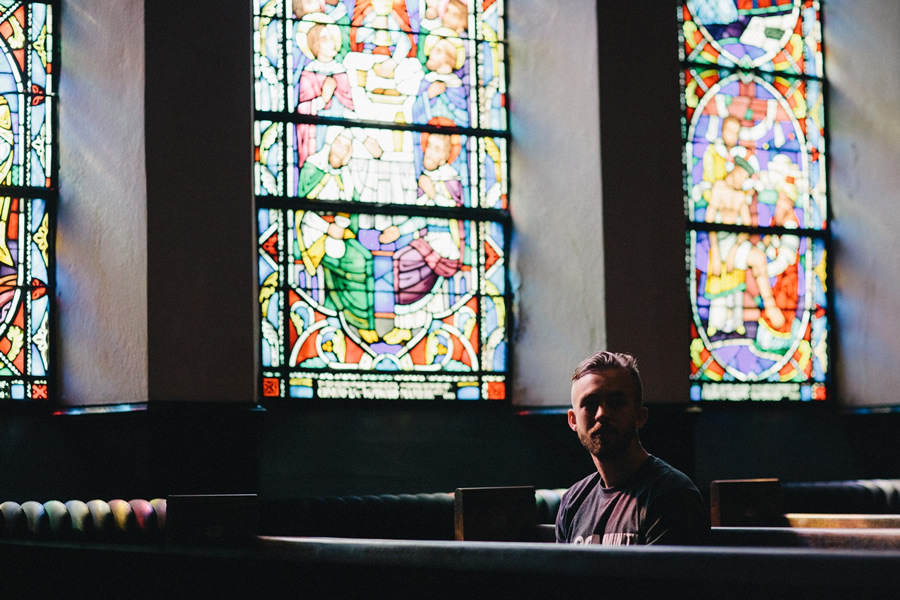
Truth, Beauty, and Goodness
06-20-2021Weekly ReflectionJen Arnold, M.A. in Theology and CatecheticsHave you ever stopped to consider what attracts you to the Catholic Church? What forms of prayer or worship are most fruitful for you? Towards which ministries are you most drawn? We can answer these questions more deeply when we examine them under a philosophical principle referred to as the transcendentals.
READ MORE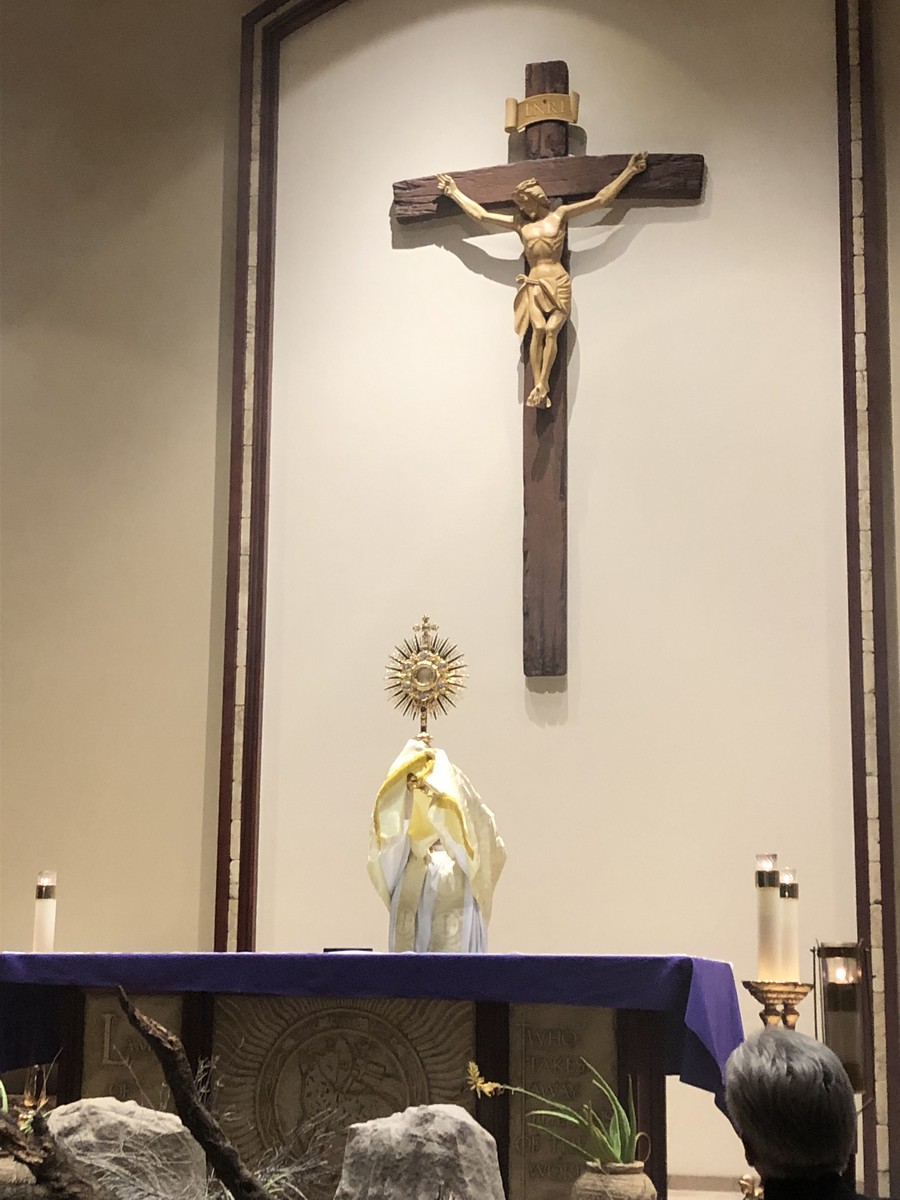
The Crucifix
06-13-2021Weekly ReflectionJen Arnold, M.A. in Theology and CatecheticsHave you ever wondered why the Catholic Church uses a crucifix as a symbol as opposed to other Christian churches that use an empty cross? It is common to hear from those outside the Church that He is risen, but we “leave Him hanging there” or that the crucifix reduces the power of the Resurrection. Also, the crucifix is often thought of as gruesome or morbid. These misconceptions are due to a lack of understanding what the crucifix actually means to us as Catholics.
READ MORE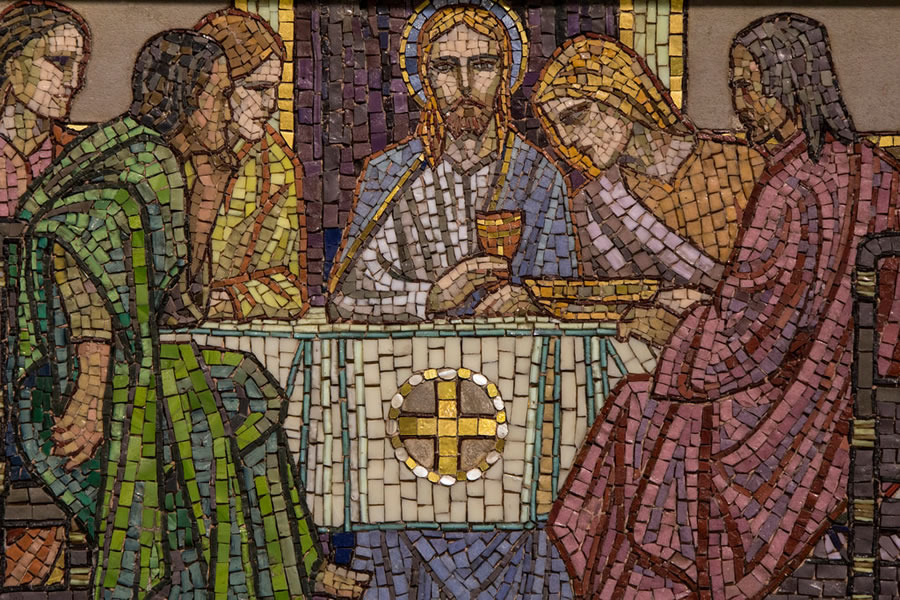
Corpus Christi - The Real Presence of Christ in the Eucharist
06-06-2021Weekly ReflectionJen Arnold, M.A. in Theology and CatecheticsToday we celebrate a very blessed day for our parish as it is the feast of our namesake, Corpus Christi, or the Body of Christ.
Before leaving his Apostles, Jesus instituted the Sacrament of the Eucharist at the Last Supper in order that He may remain physically present with His people for all time. He knew we would need Him to sustain us, both spiritually and physically, as we navigate the stormy seas that exist in our lives. In Matthew 14, Jesus walks on water. Peter, having faith in his beloved friend, asks the Lord to call him out on the water to join Him, which he did. As the winds stirred the water, Peter became afraid and started to sink, crying out to the Lord for help. Jesus reached out His hand and saved Peter. We are Peter, struggling through the trials that life throws at us, and the Eucharist is, in fact, Jesus physically liŌing us up above the fray.
READ MORE
The Most Holy Trinity
05-30-2021Weekly ReflectionJen Arnold, M.A. in Theology and CatecheticsToday we celebrate the feast of the Most Holy Trinity. There is a book by lay Catholic theologian, Frank Sheed, called Theology and Sanity. Early in the book, Sheed gives a very thorough explanation of the doctrine of the Trinity, which has been touted as one of the best explanations available. If you have a mind for philosophy or want to dive deeper into the doctrine, it is well worth the read, but I will summarize his essential points.
READ MORE
Pentecost
05-23-2021Weekly ReflectionJen Arnold, M.A. in Theology and CatecheticsToday we celebrate the birthday of the Church on the feast of Pentecost. After Jesus’ ascension, the apostles, along with Mary and a few others, went to the upper room to pray and wait for the spirit that Jesus had promised to send. After the ninth day, the Holy Spirit descended upon the apostles, enabling them to speak different languages and evangelize so they could accomplish the mission of making disciples of all people, as Jesus had commanded them. The body of Christ on earth was born and, ever since, has been animated by the Holy Spirit. Today, each of us is also a member of the body of Christ and we continue to be animated by that same Holy Spirit.
READ MORE
The Ascension of the Lord
05-16-2021Weekly ReflectionJen Arnold, M.A. in Theology and CatecheticsYour title here...
This week we celebrate the Ascension of Jesus into heaven. All three of the synoptic gospels (Matthew, Mark, and Luke) describe this event in essentially the same way. In this moment, there are two things that occur: Jesus gives instructions and Jesus takes His place. These two things have practical implications for us today, which we will examine here.
READ MORE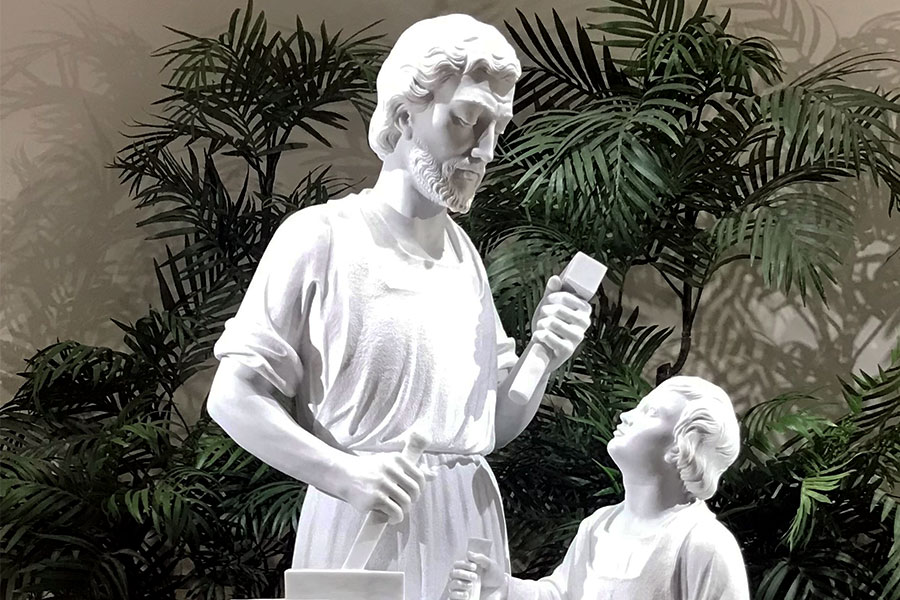
The Fourth Dream of St. Joseph
05-09-2021Weekly ReflectionJen Arnold, M.A. in Theology and Catechetics“But when he heard that Archelaus was ruling over Judea in place of his father Herod, he was afraid to go back there. And because he had been warned in a dream, he departed for the region of Galilee. He went and dwelt in a town called Nazareth, so that what had been spoken through the prophets might be fulfilled, ‘He shall be called a Nazorean.’” (Matthew 2:22-23)
READ MORE
The Third Dream of St. Joseph
05-02-2021Weekly ReflectionJen Arnold, M.A. in Theology and CatecheticsWe do not know how long the Holy Family was in Egypt waiting for further instructions from God. It could have been a year, but it could have just as easily been 10 years of not knowing how or when their circumstances might change. Regardless of the length of time, trusting in God’s will, they waited patiently and peacefully. Because Egypt was unfamiliar territory to them, their time spent there could be considered a time of tribulation for the family. They would have had to find a home, learn how to communicate, and figure out how to fit into the new culture. They would have had to miss their family and friends back home and find new people with whom to connect. Joseph would have had to find work in order to provide for the basic needs of his family. Working through these different problems would have brought challenges, but the Holy Family persevered with the faith that God would provide for their every need and reveal solutions as problems arose. Most certainly, the majority of us have had to endure various tribulations of our own without knowing how long each would last. However, reflecting on those times, can you see how God provided you with everything you needed at the time to endure each of them?
READ MORE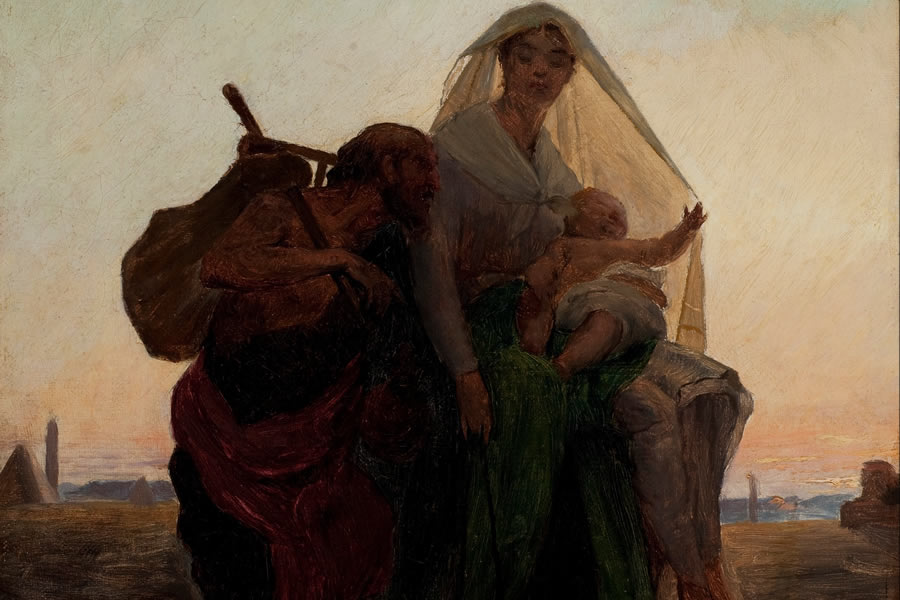
The Second Dream of St. Joseph
04-25-2021Weekly ReflectionJen Arnold, M.A. in Theology and CatecheticsThe second dream of Joseph can be found in Matthew 2:13-15: When they [the magi] had departed, behold, the angel of the Lord appeared to Joseph in a dream and said, “Rise, take the child and his mother, flee to Egypt and stay there until I tell you. Herod is going to search for the child to destroy him.” Joseph rose and took the child and his mother by night and departed for Egypt. He stayed there until the death of Herod, that what the Lord said through the prophet might be fulfilled, “Out of Egypt I called my son.”
READ MORE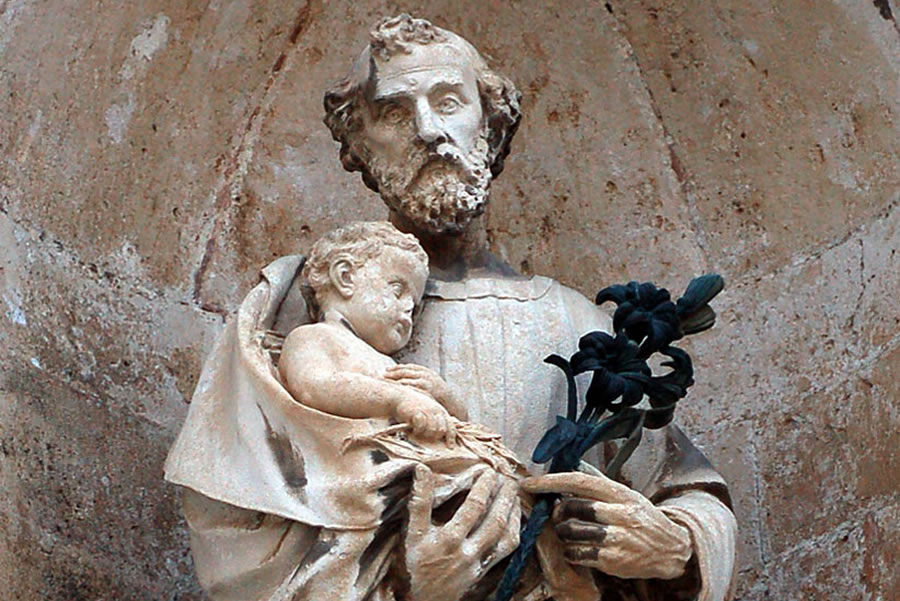
The First Dream of St. Joseph
04-18-2021Weekly ReflectionJen Arnold, M.A. in Theology and CatecheticsSince this year is has been declared the year of St. Joseph by Pope Francis, we will have a four week series reflecting on the four dreams of St. Joseph.
Joseph’s first dream is recorded in Mathew 1:18-24:
Now this is how the birth of Jesus Christ came about. When his mother Mary was betrothed to Joseph, but before they lived together, she was found with child through the Holy Spirit. Joseph her husband, since he was a righteous man, yet unwilling to expose her to shame, decided to divorce her quietly. Such was his intention when, behold, the angel of the Lord appeared to him in a dream and said, “Joseph, son of David, do not be afraid to take Mary your wife into your home. For it is through the Holy Spirit that this child has been conceived in her. She will bear a son and you are to name him Jesus, because he will save his people from their sins.” All this took place to fulfill what the Lord had said through the prophet: “Behold, the virgin shall be with child and bear a son, and they shall name him Emmanuel,” which means “God is with us.” When Joseph awoke, he did as the angel of the Lord had commanded him and took his wife into his home.

Divine Mercy
04-11-2021Weekly ReflectionJen Arnold, M.A. in Theology and CatecheticsThis weekend we celebrate Divine Mercy Sunday, which is devoted to an emphasis on the infinite mercy we continually receive from our loving Father in Heaven. As fallen humans, we have so much need for this divine mercy. Fortunately for us,the font from which it flows is bottomless. However, it is not enough for Jesus to simply pour His mercy over us. We must respond to that mercy with gratitude and a willingness to amend our lives of sin and grow in virtue. The gift is empty and meaningless if we do not use it as it is intended to be used.
READ MORE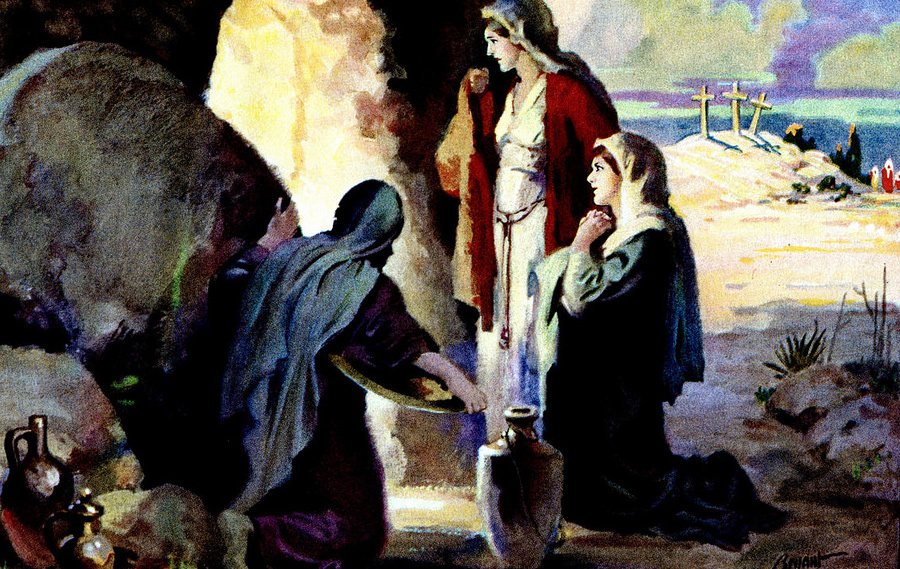
The Resurrection of the Lord
04-04-2021Weekly ReflectionJen Arnold, M.A. in Theology and CatecheticsAlleluia! Alleluia! Lent has come to an end and we have arrived, at last, on the holiest and most joyful holiday in our Catholic Church – Easter!
What is the significance of the Resurrection of Jesus Christ to us in the here and now? When Adam and Eve were created, God did not intend suffering and death for them, or the generations of humanity that were to follow. It was the original sin of disobedience that brought about the consequences of sin, suffering, and death that we experience in our own lives today. Jesus’ resurrection is a physical sign to us that He came to conquer the death that was brought about by sin. He rose to life so that we might experience new life in Him. Mary is the new Eve – while Eve disobeyed God, Mary obeyed to bring about the one who would undo the damage. Similarly, Jesus is the new Adam – the one to restore life.
READ MORE